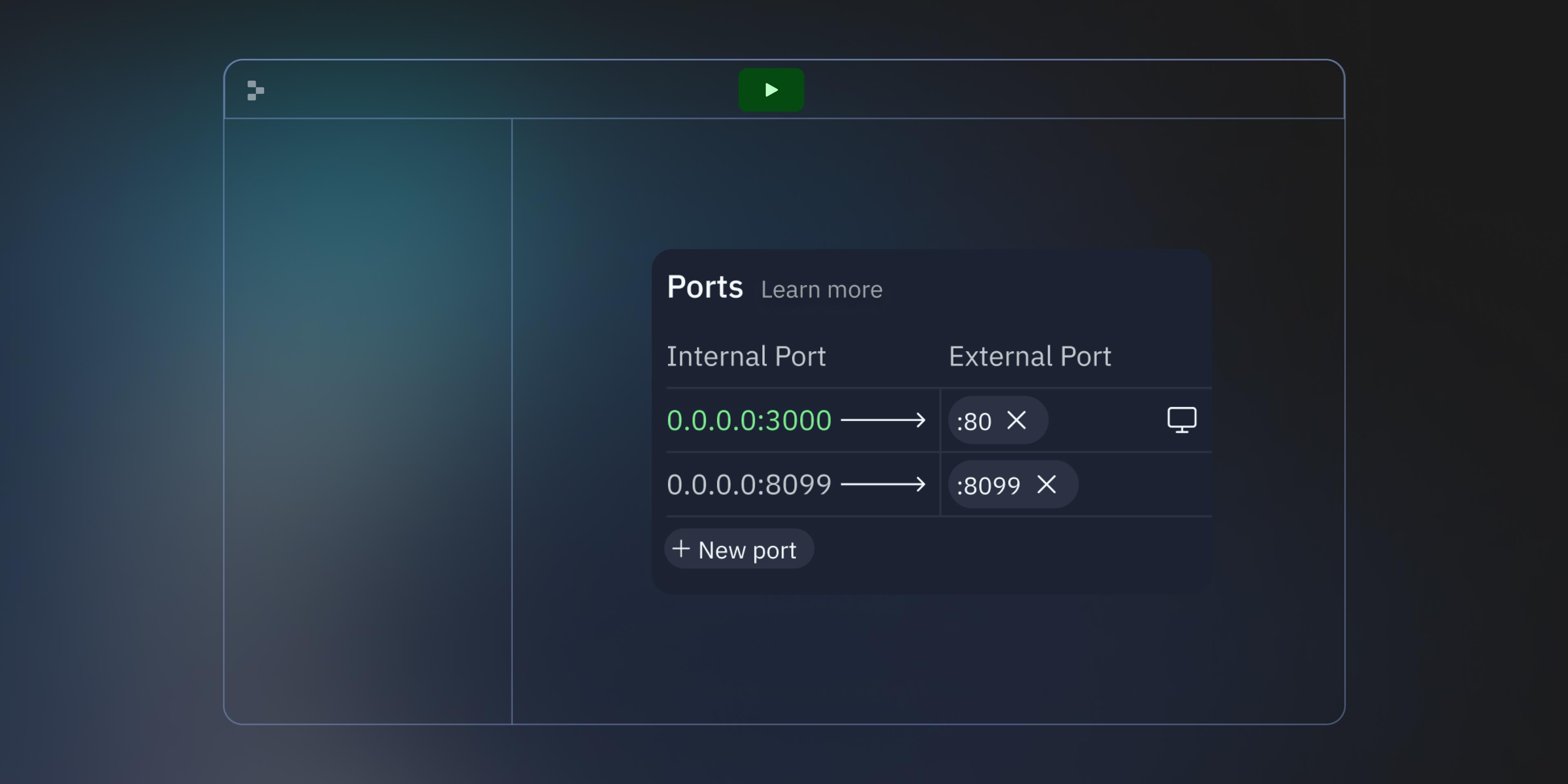 Fri, Apr 5, 2024
Fri, Apr 5, 2024Advanced port configuration
We recently spent a few months making ports easier to work with on Replit, so you can develop more complex apps predicta...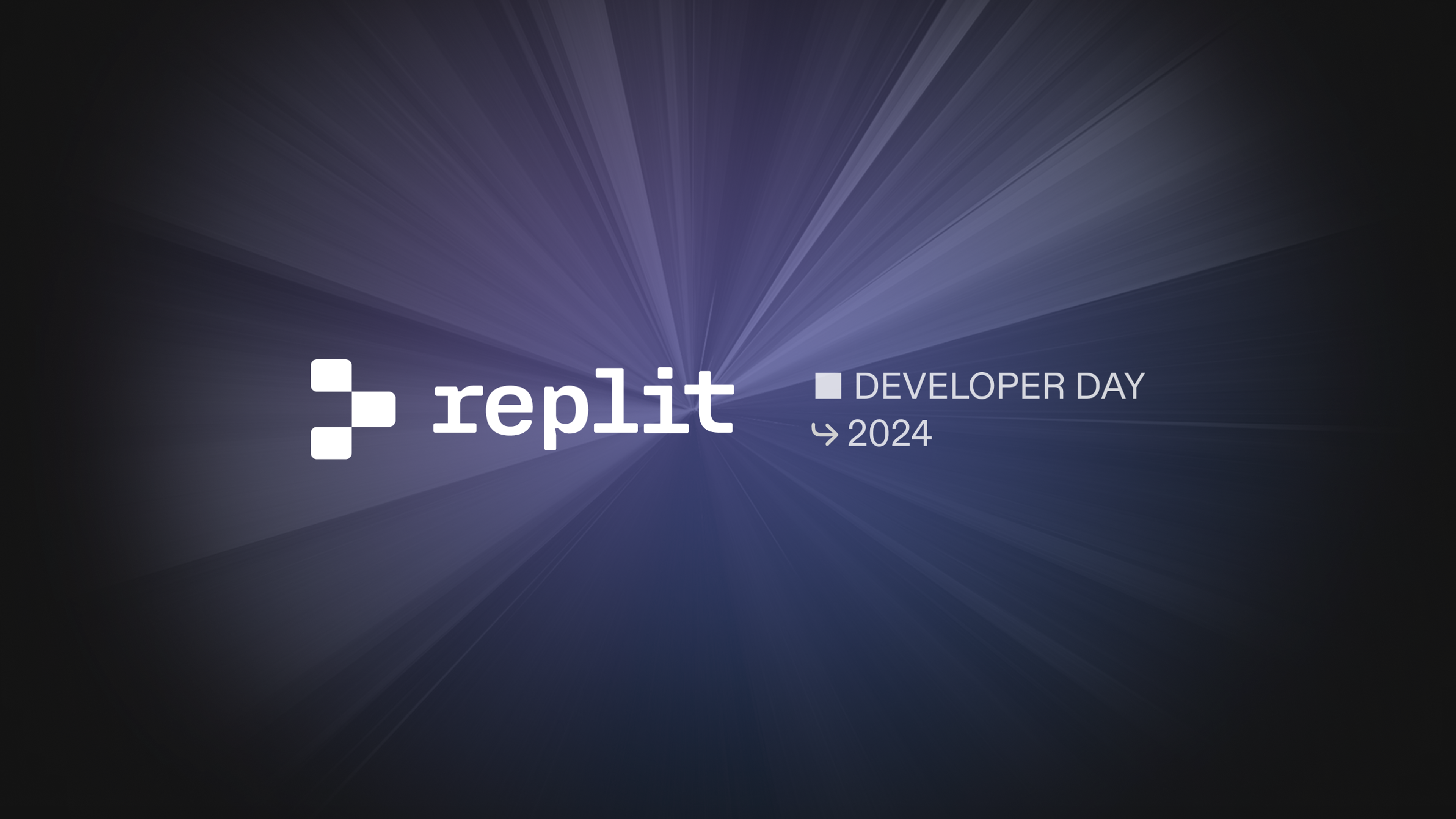 Wed, Apr 3, 2024
Wed, Apr 3, 2024Replit Developer Day recap
On April 2nd, we hosted our second annual Developer Day live from San Francisco. We announced our biggest evolution yet ...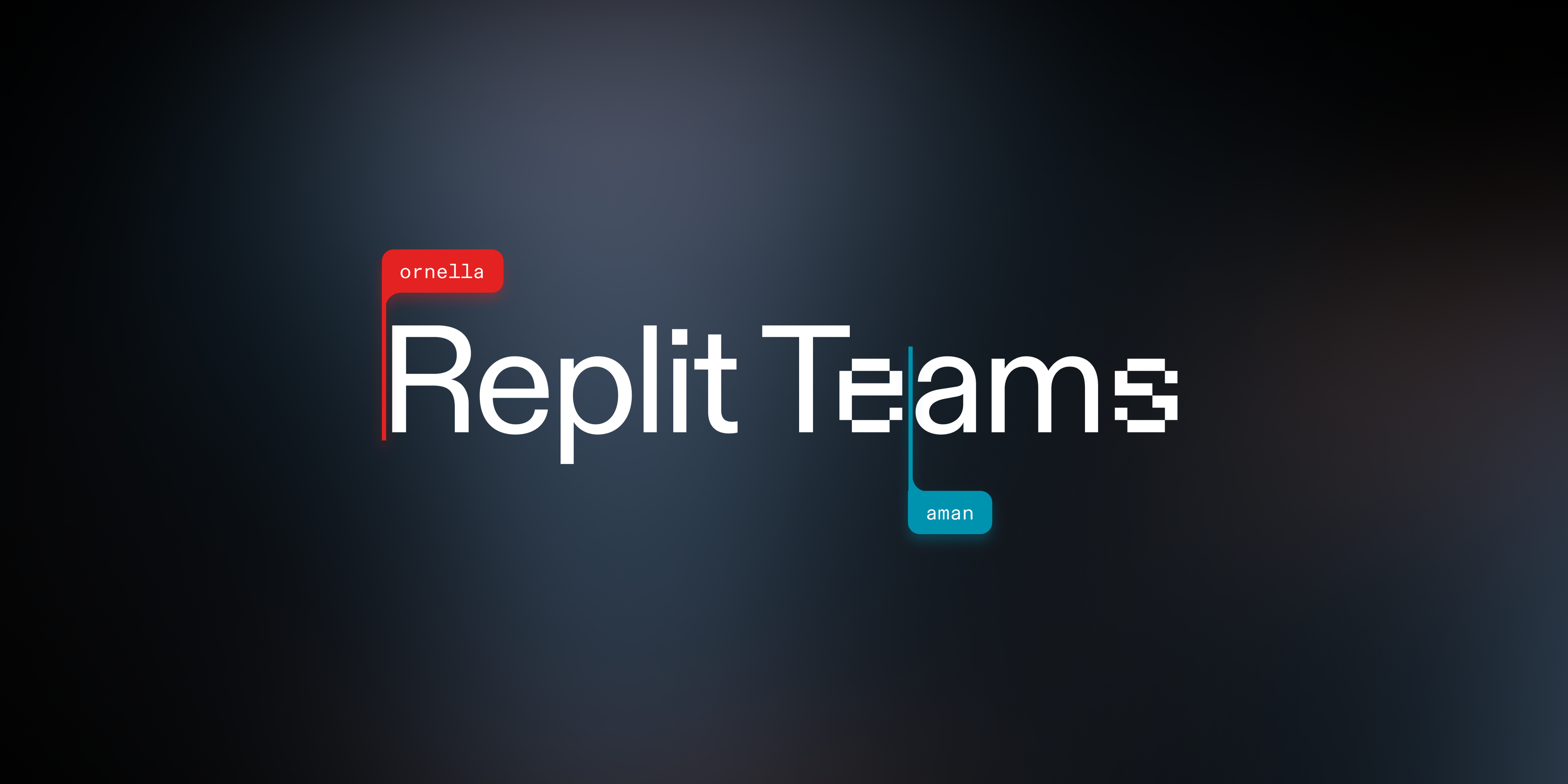 Tue, Apr 2, 2024
Tue, Apr 2, 2024Get early access to Replit Teams
We’re bringing the power of Replit to your team, so that you can collaborate, develop, and deploy software together. Th...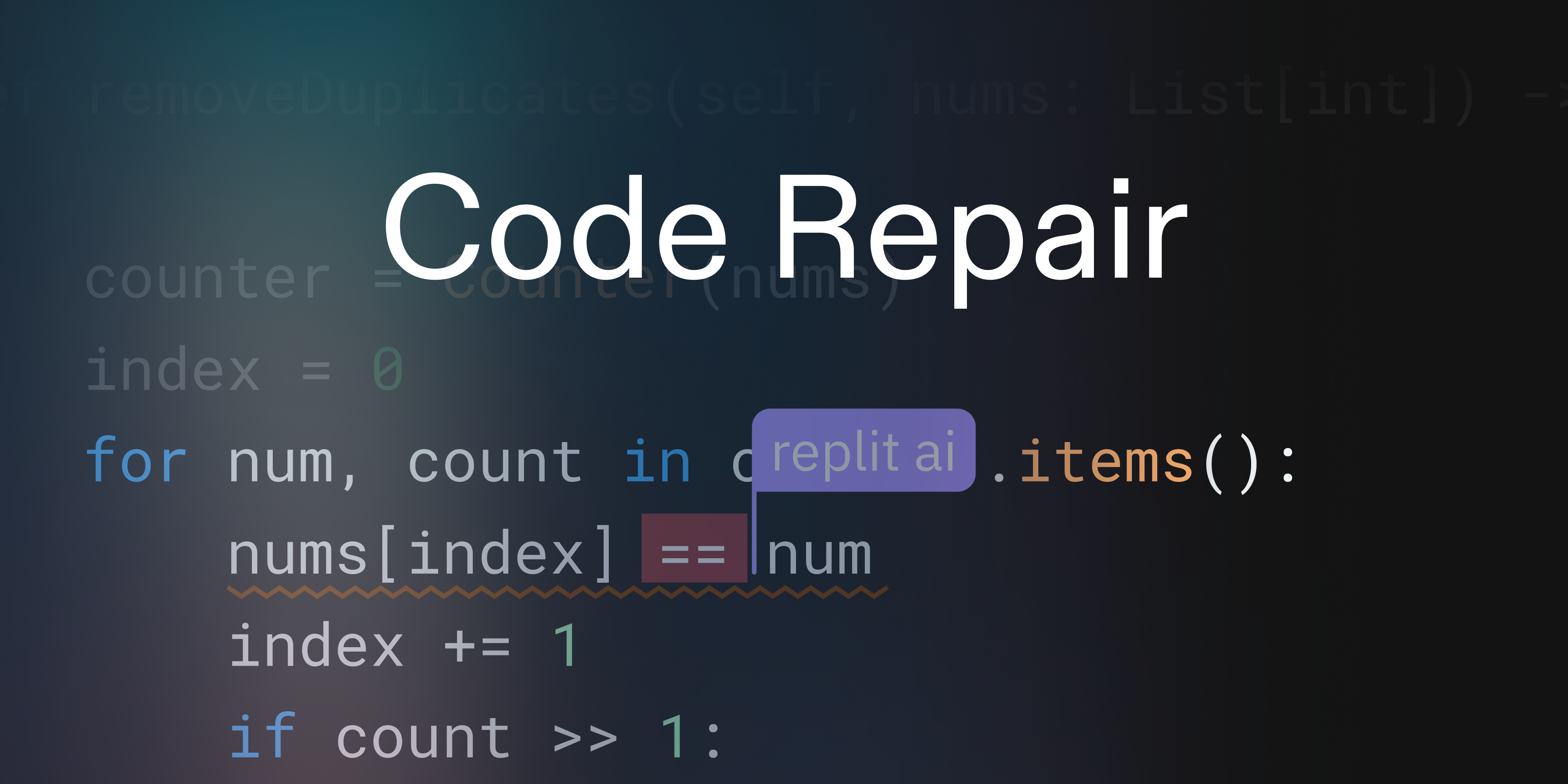 Tue, Apr 2, 2024
Tue, Apr 2, 2024Building LLMs for Code Repair
Introduction At Replit, we are rethinking the developer experience with AI as a first-class citizen of the development ... Mon, Apr 1, 2024
Mon, Apr 1, 2024Builder Profile: Pietro Schirano
Pietro Schirano is the co-founder of EverArt. By pursuing his ideas on Replit, he’s been able to nurture a curiosity in ... Mon, Apr 1, 2024
Mon, Apr 1, 2024Builder Profile: Mason Kim
As a Global DevOps Engineer at Zinus, Mason (Junkuk) Kim’s role is to build software to enable the marketing, business, ...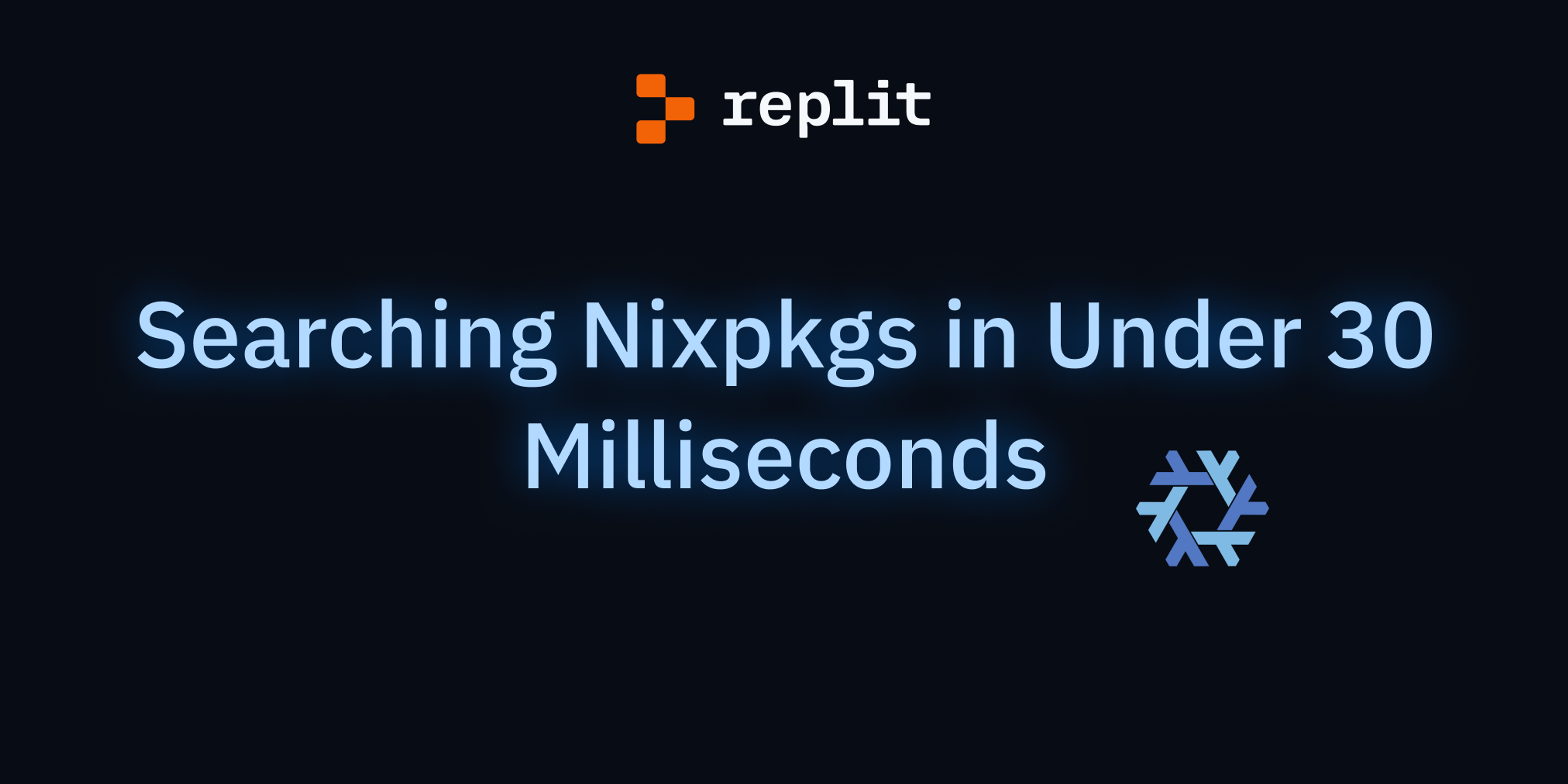 Fri, Mar 29, 2024
Fri, Mar 29, 2024Searching Nixpkgs in Under 30 Milliseconds
Today, we’re releasing the first version of rippkgs, a CLI utility for indexing and searching Nix expressions. With ripp...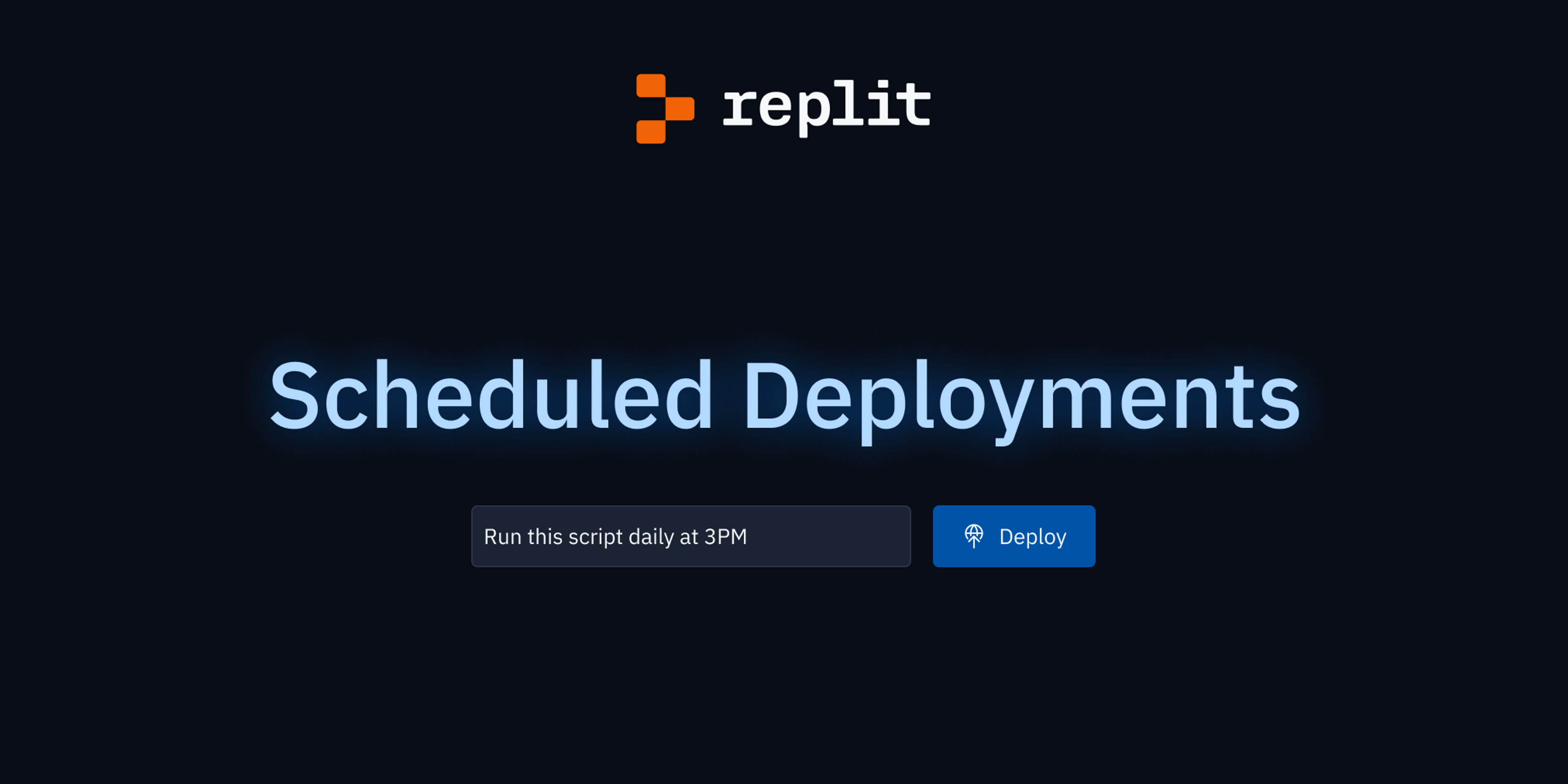 Tue, Mar 26, 2024
Tue, Mar 26, 2024Introducing Scheduled Deployments
Today, we are launching Scheduled Deployments. This service allows you to schedule your applications to run at predeterm... Mon, Mar 18, 2024
Mon, Mar 18, 2024More Reliable Connections to Your Repls
At Replit, session success rate is one of our service level objectives (SLOs). This means that any legitimate incoming r...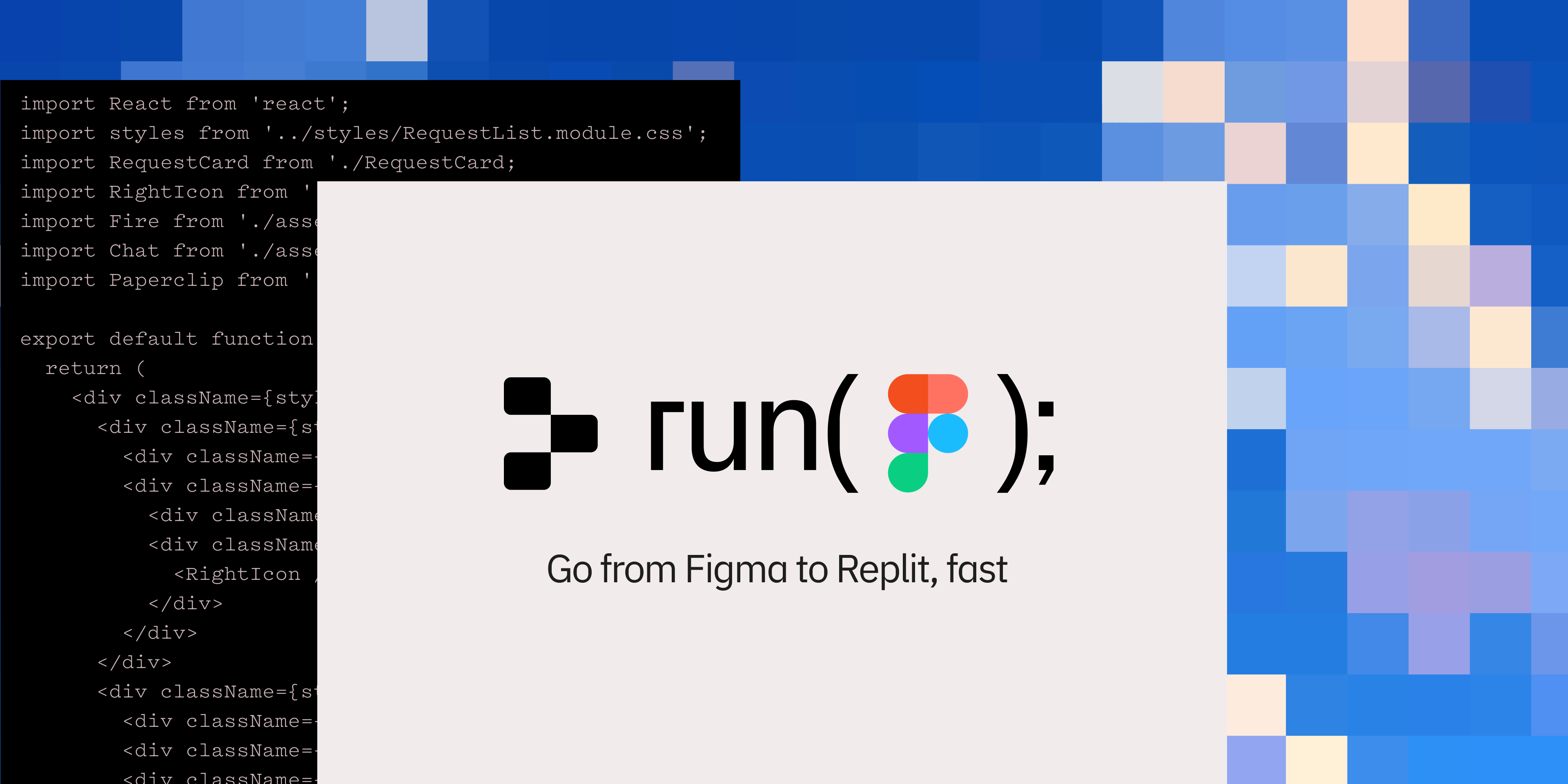 Thu, Feb 22, 2024
Thu, Feb 22, 2024Experiment: Figma to Replit Plugin
Today we’re releasing an experimental Figma to Replit plugin. The plugin’s goal is to streamline the process from design...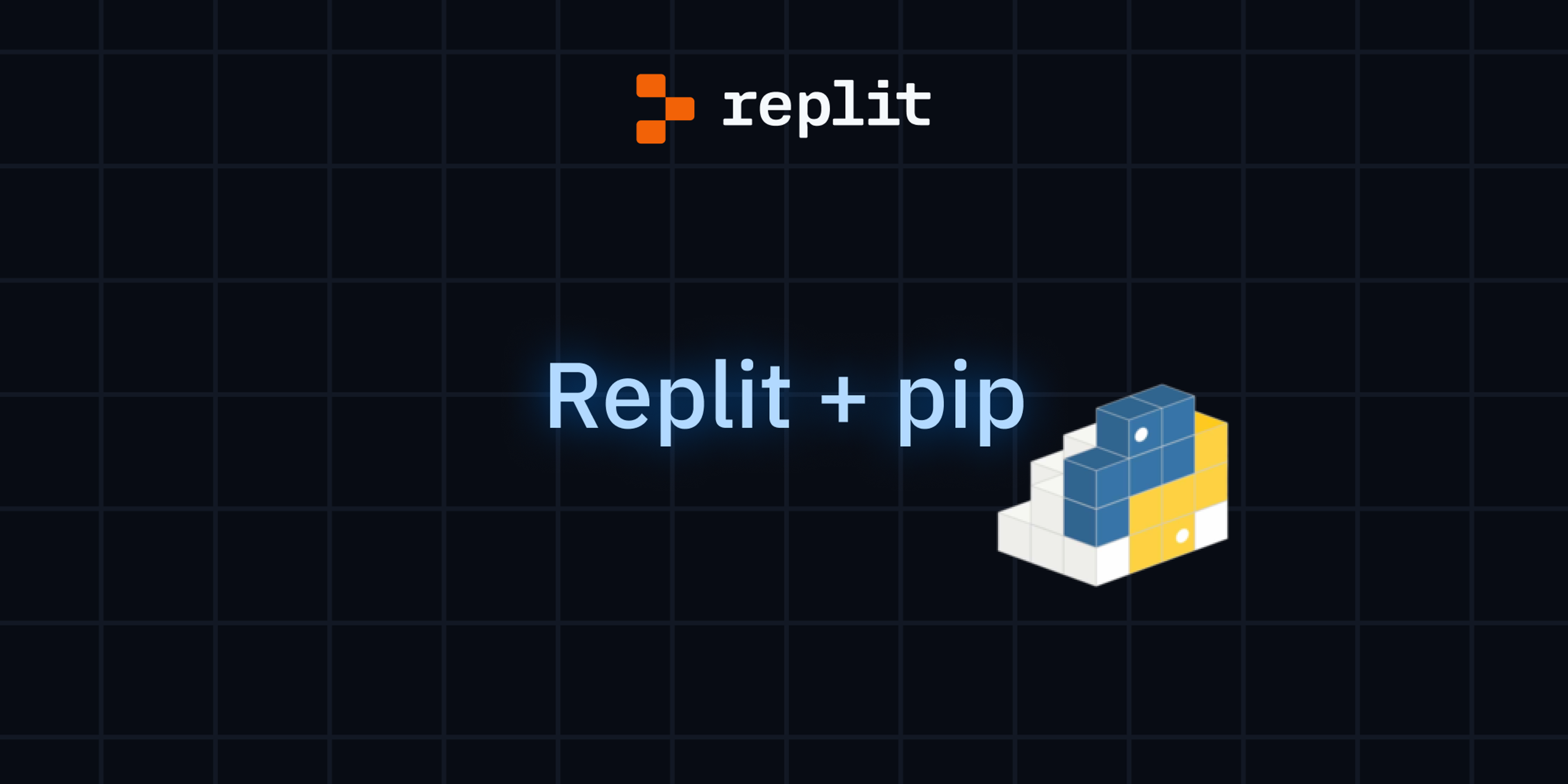 Thu, Feb 15, 2024
Thu, Feb 15, 2024Replit + pip
First-class pip support We’re thrilled to announce that first-class pip support is now available on Replit! This should... Wed, Feb 14, 2024
Wed, Feb 14, 2024Sharding Infrastructure: The Regional Goval Project
The main task of the infrastructure team at Replit is to ensure your Repls run well. A Repl can be thought of as a Linux...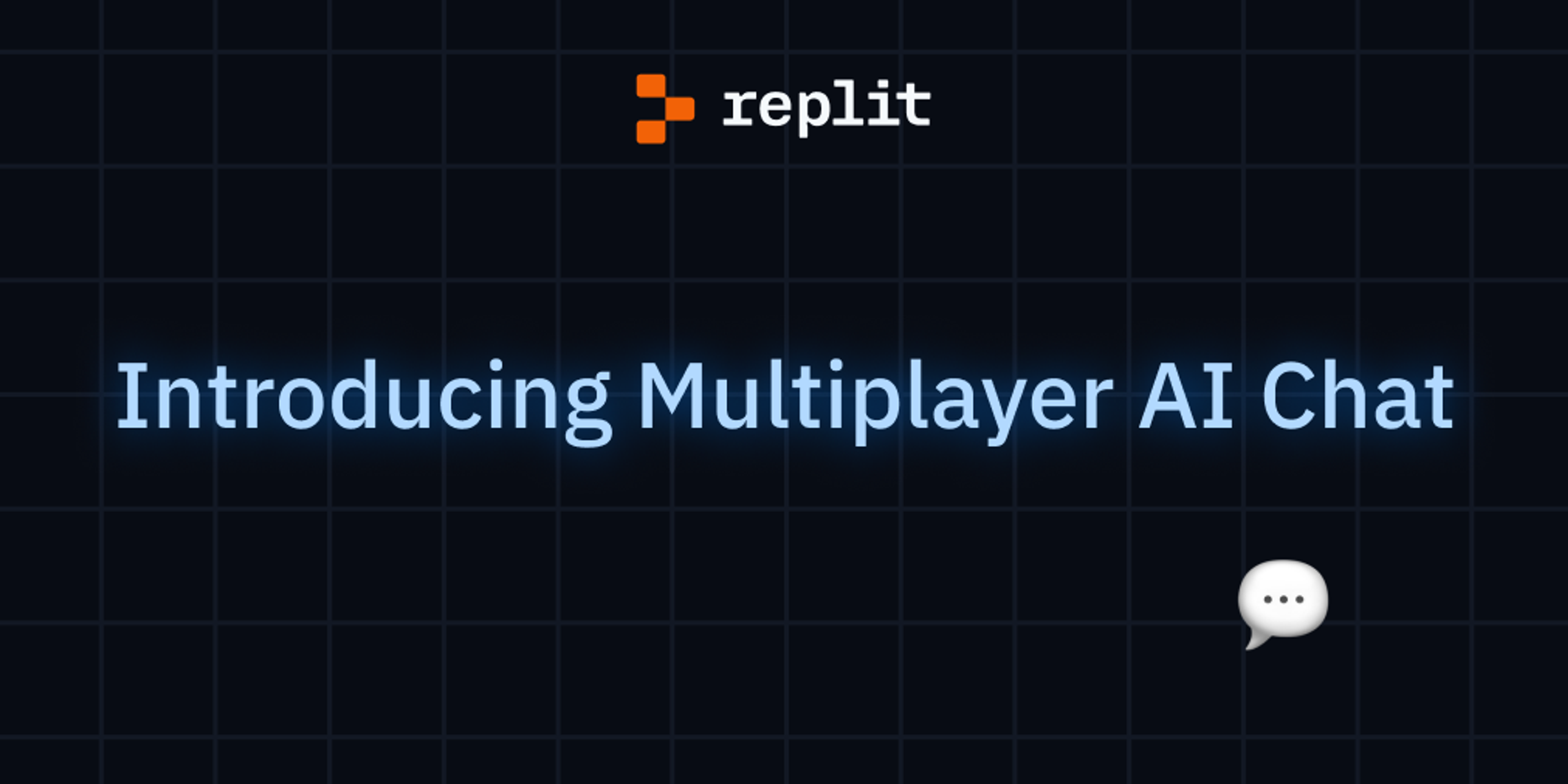 Wed, Feb 14, 2024
Wed, Feb 14, 2024Introducing Multiplayer AI Chat
One of our core beliefs at Replit is that multiplayer collaboration makes building software more creative and efficient.... Mon, Feb 12, 2024
Mon, Feb 12, 2024Flexible Credits and Usage-Based Billing
Replit has evolved from a simple online editor to a comprehensive end-to-end software development platform trusted by de...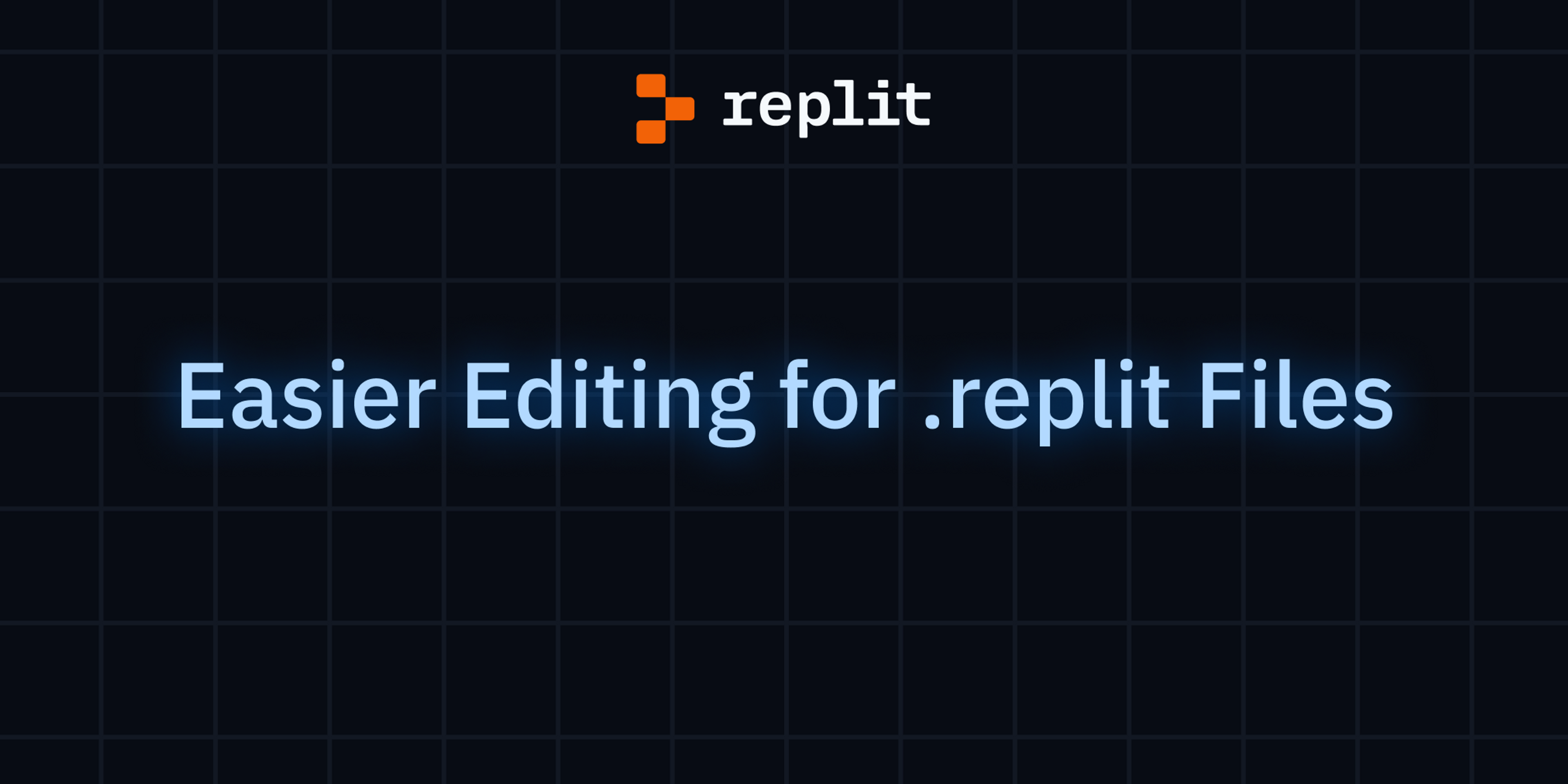 Tue, Feb 6, 2024
Tue, Feb 6, 2024Easier Editing for .replit Files
At Replit, we want to make it easy to support any project configuration possible. This includes ensuring your binaries a...